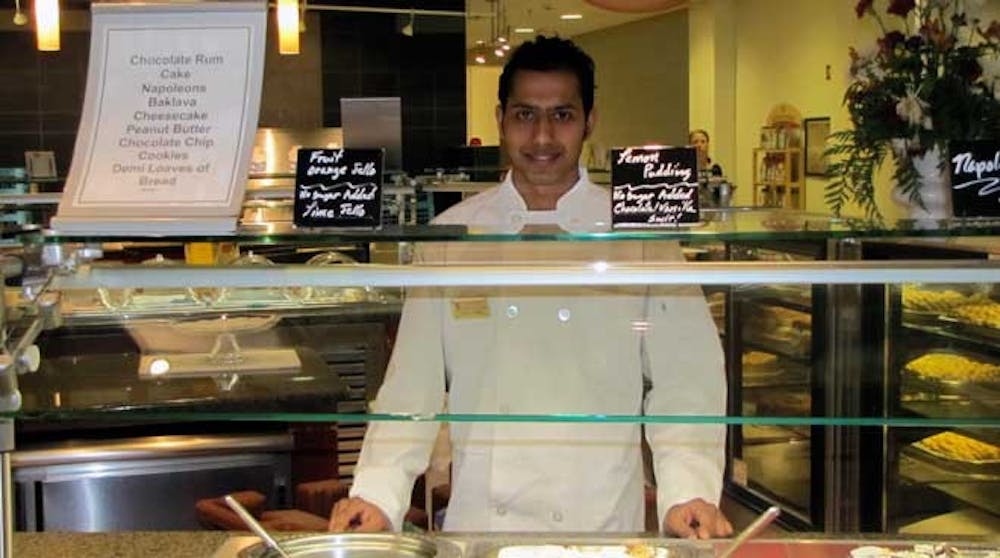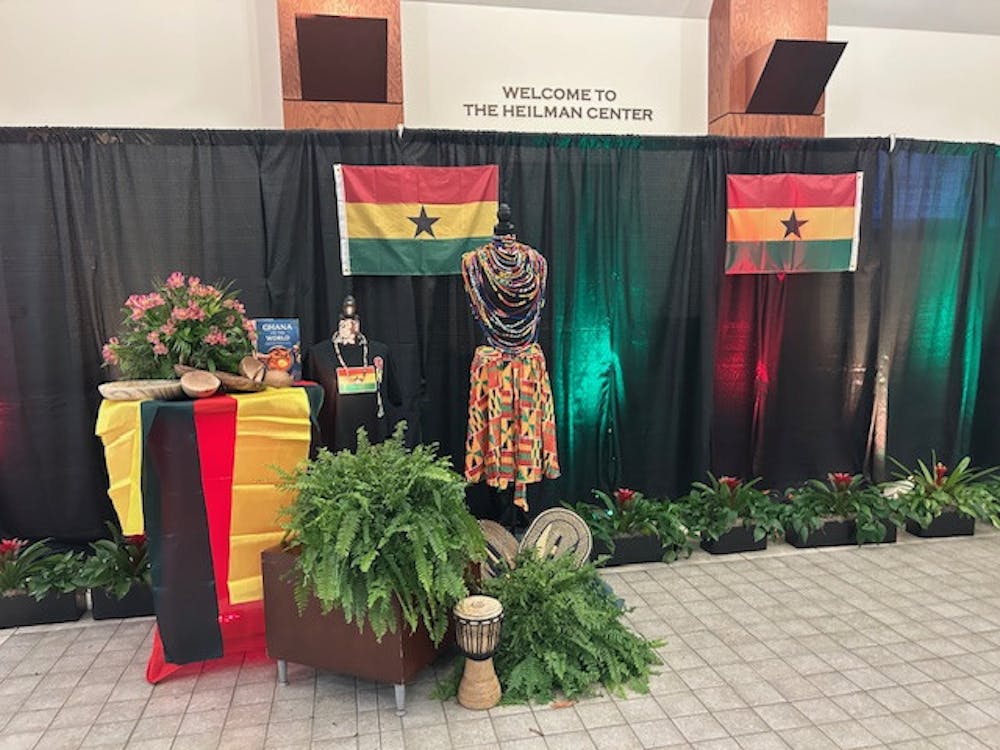For most people, the question, "Where do you call home?" is a rather simple one. For Kuldip Acharya, that question is anything but simple.
Acharya, a shy-looking young man with dark eyes and a warm smile, can often be seen in the University of Richmond dining hall attending to the needs of hundreds of hungry students each day.
Acharya has been working in the Heilman Dining Center since 2008. He and his family moved to Richmond, Va., from Nepal, where they had been living as refugees in a camp for 18 years.
Originally from Bhutan, Acharya and his family were forced to leave when he was 3 years old. During this time, the government initiated an ethnic cleansing of the Nepalese people living in Bhutan.
"I spent 18 years living in a bamboo hut," Acharya said. "When the cold wind comes in America, people have nice houses and windows where air can't pass through. Our house had nothing like this. We also couldn't sleep at night in the summer because there were few trees, which made it unbearably hot."
Acharya, who speaks Nepali, English and Hindi, can also understand Dzongkhar, the native language of Bhutan, as well as Bengali. "Ethnically I'm Nepalese. The last five generations of my family are from Bhutan, but the five generations before were from Nepal," he said.
When the Nepalese people practiced their own culture, the government looked down upon them, Acharya said. When they used Nepalese books to teach, they were told to throw them away, he said. "We were told to speak a different language. We were even told to dress differently than we wanted to."
The government started only giving scholarships for people to study abroad if they were Dukpa, Acharya said. They would tax Nepalese people, but not the Dukpa, he said. "When the Nepalese people asked for human rights they were threatened."
During the 18 years he and his family spent in the refugee camp in Nepal, Acharya would travel to Darjeeling, India, known for its large tea industry, for schooling, he said. Everyone began to grow tired of living in the refugee camp and thought the best solution would be to settle in America, he said.
With the help of the U.N. Refugee Agency, the Acharyas were able to resettle in Richmond in August of 2008, he said. "Sixty thousand of us came to America and split in all 50 states." Since Acharya was the best English speaker in his family, he said it was his responsibility to find a job. He began working part-time at Richmond in November of that year, he said.
The immigration office assigned Acharya a volunteer to help him assimilate into American culture and everyday life, he said. A friend of Acharya's volunteer gave him a summer job at Virginia Commonwealth University doing work with computer software programs, he said. "I had planned to go to school myself, but I didn't know how it worked in America. My family didn't know how it worked either. There was no one here to help us."
It wasn't until an international student at Richmond named Remo Kommnick explained to Acharya how the system worked that he learned how to apply to college, he said. Acharya is currently enrolled as a student at the J. Sargeant Reynolds Community College in Richmond. Acharya is a mathematics major and is taking computer classes as well, he said.
Enjoy what you're reading?
Signup for our newsletter
After finishing his degree, Acharya said he might transfer to Richmond. "Really, I'm interested in UVa.," he said. "I had heard of UVa when I was in Nepal. I feel like going to UVa. is like going to Harvard.
"I used to joke with my friends at school in India. I never told them I was a refugee, so when they'd ask me about my plans after high school I used to say, 'I'm going to Harvard.'" That was in 2005.
After working for the next couple of years, Acharya said he hoped to save enough money to send his parents back to Bhutan to visit his relatives who were unable to leave.
Contact reporter Liz Monahan at liz.monahan@richmond.edu
Support independent student media
You can make a tax-deductible donation by clicking the button below, which takes you to our secure PayPal account. The page is set up to receive contributions in whatever amount you designate. We look forward to using the money we raise to further our mission of providing honest and accurate information to students, faculty, staff, alumni and others in the general public.
Donate Now



